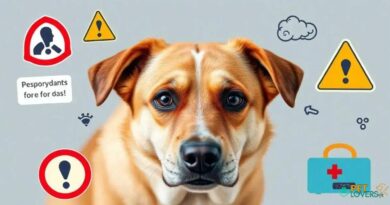What is feeding small dogs
Understanding the Nutritional Needs of Small Dogs
Feeding small dogs requires a nuanced understanding of their unique nutritional needs. Unlike larger breeds, small dogs have faster metabolisms and require a diet that is rich in high-quality proteins, fats, and essential nutrients. This ensures they maintain their energy levels and overall health. It’s crucial to select dog food specifically formulated for small breeds, as these products often contain the right balance of nutrients tailored to their size and activity level.
The Importance of Portion Control
When it comes to feeding small dogs, portion control is vital. Due to their small size, even a slight overfeeding can lead to obesity, which is a common issue among small breeds. Owners should follow the feeding guidelines provided on dog food packaging and adjust portions based on their pet’s age, weight, and activity level. Regularly monitoring your dog’s weight can help prevent health issues related to obesity.
Choosing the Right Type of Dog Food
Selecting the right type of dog food is essential for small dogs. There are various options available, including dry kibble, wet food, and raw diets. Dry kibble is often the most convenient and can help maintain dental health, while wet food can be more palatable and hydrating. It’s important to choose a high-quality brand that lists meat as the first ingredient and avoids fillers and artificial additives.
Understanding Ingredients and Labels
Reading dog food labels is crucial for ensuring your small dog receives a balanced diet. Look for foods that contain high-quality protein sources, such as chicken, beef, or fish, along with whole grains and vegetables. Avoid foods with vague terms like “meat by-products” or “animal fat,” as these can indicate lower quality ingredients. Understanding the ingredients can help you make informed choices about your dog’s diet.
Special Dietary Needs for Small Breeds
Some small dogs may have special dietary needs due to health issues or allergies. For instance, dogs with sensitive stomachs may benefit from grain-free diets or limited ingredient formulas. It’s essential to consult with a veterinarian to determine the best diet for your small dog, especially if they have specific health concerns or dietary restrictions.
Feeding Frequency and Routine
Establishing a consistent feeding routine is important for small dogs. Most small breeds thrive on two to three meals a day, rather than free feeding, which can lead to overeating. Regular feeding times help regulate their metabolism and can also aid in house training. Creating a schedule can make mealtime a positive experience for both you and your dog.
Hydration is Key
In addition to a balanced diet, ensuring your small dog stays hydrated is crucial. Always provide fresh, clean water and monitor their intake. Some small dogs may be prone to urinary issues, so encouraging water consumption can help prevent these problems. Consider incorporating wet food into their diet, as it can contribute to their overall hydration.
Homemade Diets for Small Dogs
Some pet owners opt to prepare homemade meals for their small dogs. While this can be a healthy option, it’s essential to ensure that the diet is balanced and meets all nutritional requirements. Consulting with a veterinarian or a pet nutritionist can help you create a well-rounded homemade diet that supports your small dog’s health and well-being.
Monitoring Your Dog’s Health
Regular veterinary check-ups are vital for monitoring your small dog’s health and dietary needs. Your vet can provide guidance on weight management, dietary adjustments, and any necessary supplements. Keeping an eye on your dog’s overall health, including their coat condition, energy levels, and digestion, can help you identify any potential dietary issues early on.
Understanding Treats and Snacks
Treats can be a great way to reward your small dog, but it’s important to choose them wisely. Opt for healthy, low-calorie treats that complement their diet rather than contribute to weight gain. Treats should make up no more than 10% of your dog’s daily caloric intake. Always consider the size of the treat in relation to your dog’s size to prevent choking hazards.




